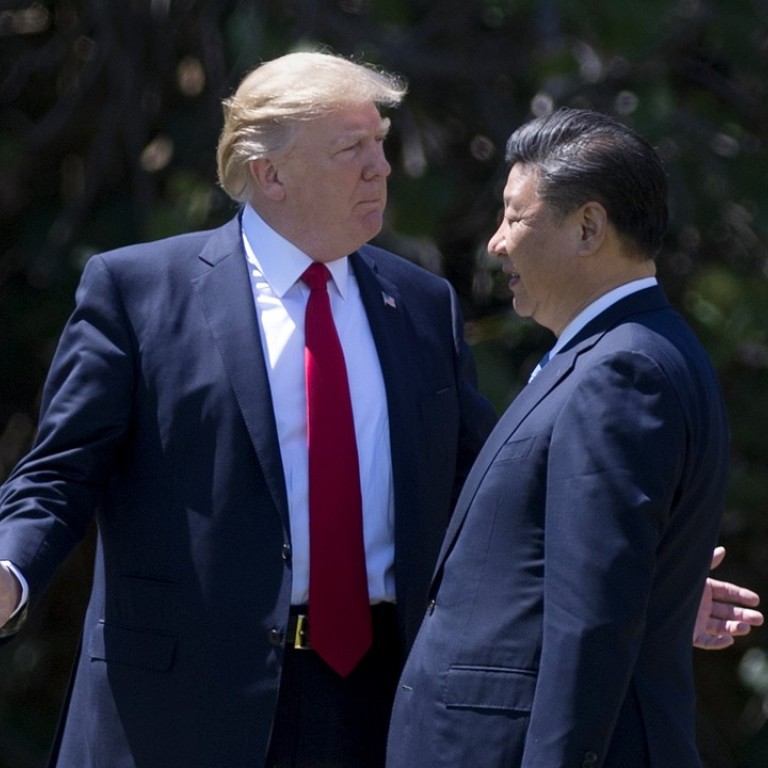
China and North Korea: What now if Xi-Trump bromance is over?
Brace for a sanctions-induced trade war between the world’s two biggest economies
WATCH: North Korea claims successful test of intercontinental ballistic missile
Before embarking on his Europe tour for the G20 summit, a tweet from an injured Trump on Wednesday read: “Trade between China and North Korea grew almost 40 per cent in the first quarter. So much for China working with us – but we had to give it a try!”
“The situation with North Korea has entered a particularly dangerous phase; the fallout with China is unclear,” said Satu Limaye, director of the East-West Centre in Washington. “The ballasts for US-China relations are less grounded now and we may be entering a period of particular dissonance between Beijing and Washington.”
North Korea’s passed a dangerous nuclear threshold – did anybody notice?
Like other North Korean missile tests, the one on July 4 that has thrown the brief tango between the two powers off balance was a lofted vertical launch. But this one reached a height of 2,800km. In a more typical horizontal trajectory, it could have travelled 6,500km, putting all of Alaska within its range. Though the lower 48 American states and Hawaii would still be out of reach, the threat of a nuclear strike on the US mainland now looks increasingly real – a risk Trump thought he had hedged against by doubling down on Xi.
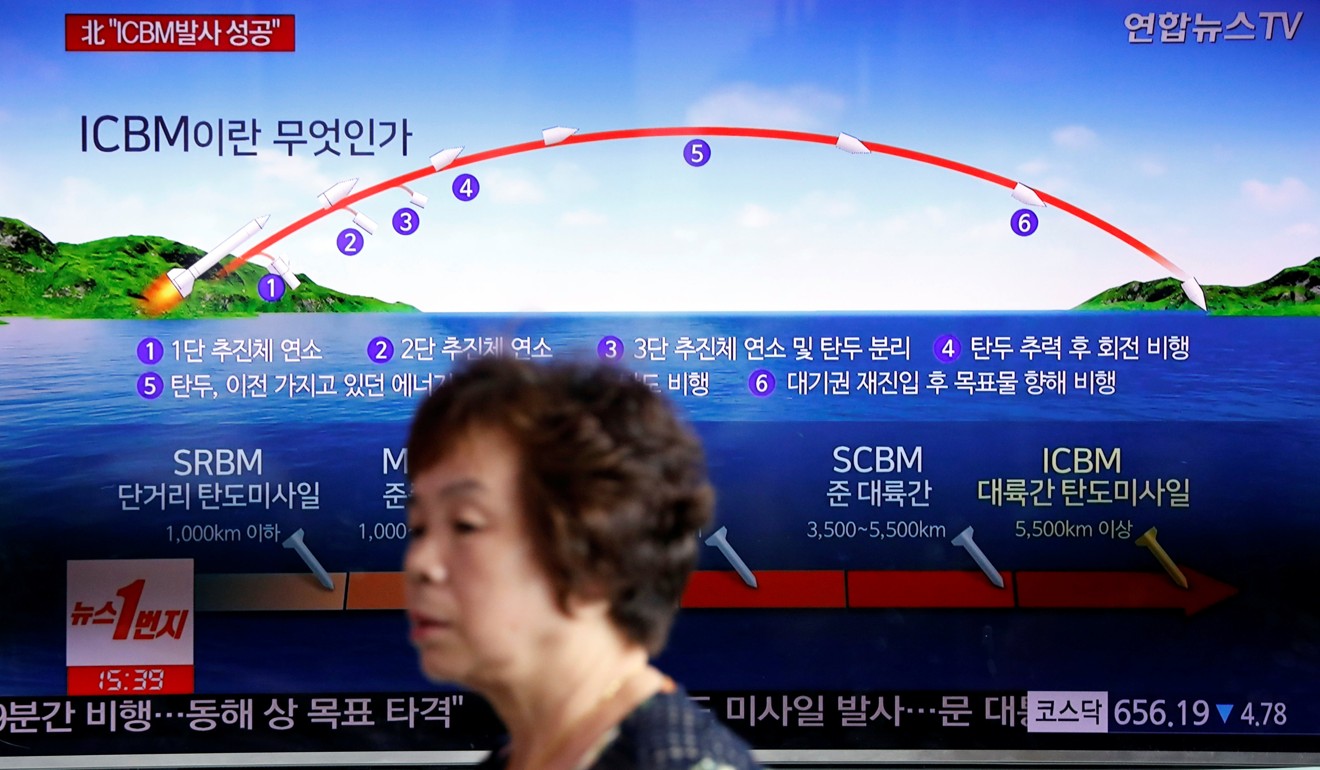
“A nuclear test and an ICBM test were Trump’s no-no and Xi has failed to deliver on this front. Remember that Trump had in January set a red line when he tweeted that an ICBM test ‘won’t happen’. This is as much a defeat for Trump as it is a humiliation for Xi.”
Opinion: North Korea is addicted to missiles – if intervention fails, it’s war
The fact is, there is basically no military option, said Charles Morrison, distinguished senior fellow and former president of the East-West Centre in Hawaii. “They hold Seoul hostage to an artillery attack, and no South Korean government, especially the new one, is going to agree that military action is a good idea.”
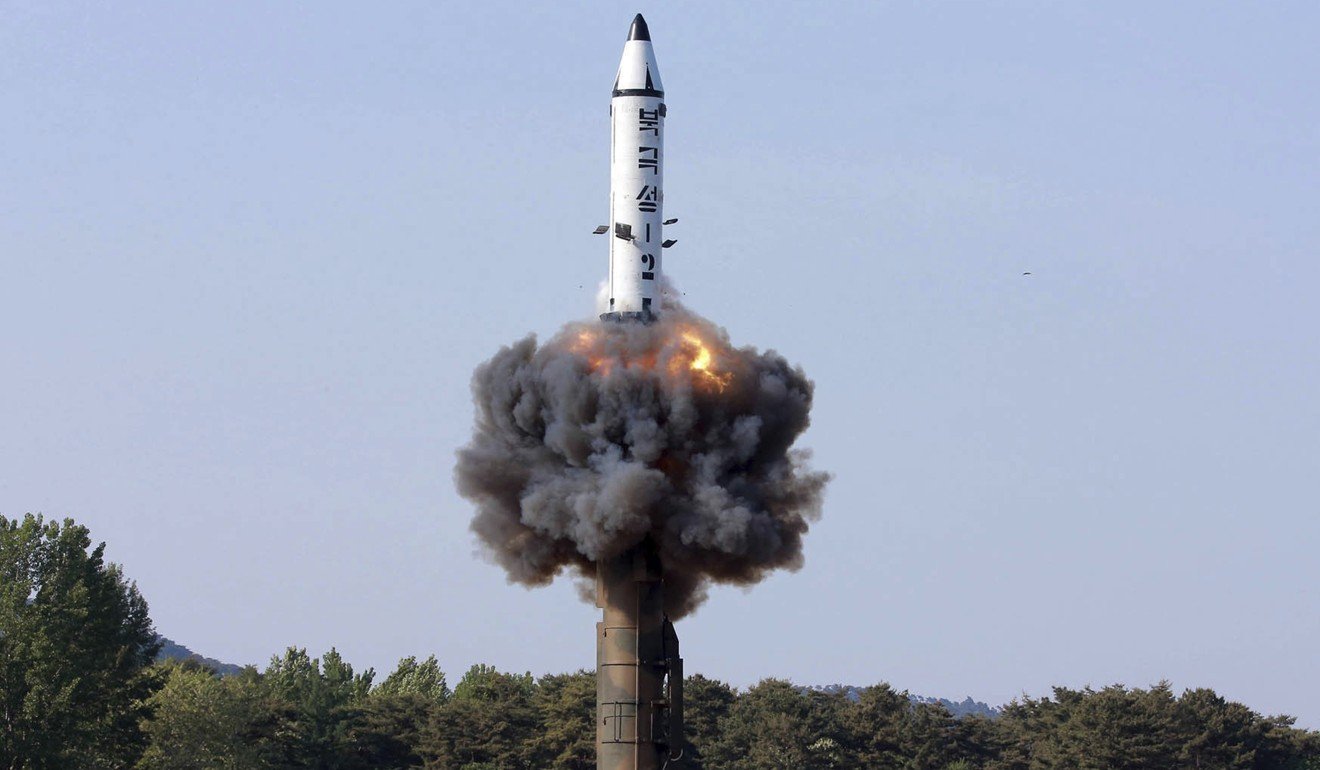
In that case, the best Trump can do is go after Kim’s purse, which puts Chinese companies squarely in the cross hairs. In the past few days, the US has downgraded China to the lowest tier on its global list of human trafficking and forced labour offenders, and slapped sanctions on two Chinese citizens, China’s Bank of Dandong and a shipping company for aiding Pyongyang. There are also murmurs of possible trade actions against Beijing such as tariffs on steel imports. One of Trump’s other tweets on Wednesday read: “The United States made some of the worst trade deals in world history. Why should we continue these deals with countries that do not help us?”
Mystery of the North Koreans who left Macau for Zhuhai
The action against the Bank of Dandong would give added weight to those calling for more aggressive financial sanctions against Chinese banks, entities and individuals involved in financing North Korea, Victor Cha, who used to be George W. Bush’s top adviser on North Korea as director for Asian affairs at the National Security Council, told This Week in Asia.
But if Washington decided to drastically expand the blacklist of Chinese companies, it would probably lead to a significant downturn in US-China relations, said Guo Yu, principal China analyst at global risk and strategic consultancy Verisk Maplecroft. “The images of the Trump-Xi Mar-a-Lago summit could become a mere distant memory.”
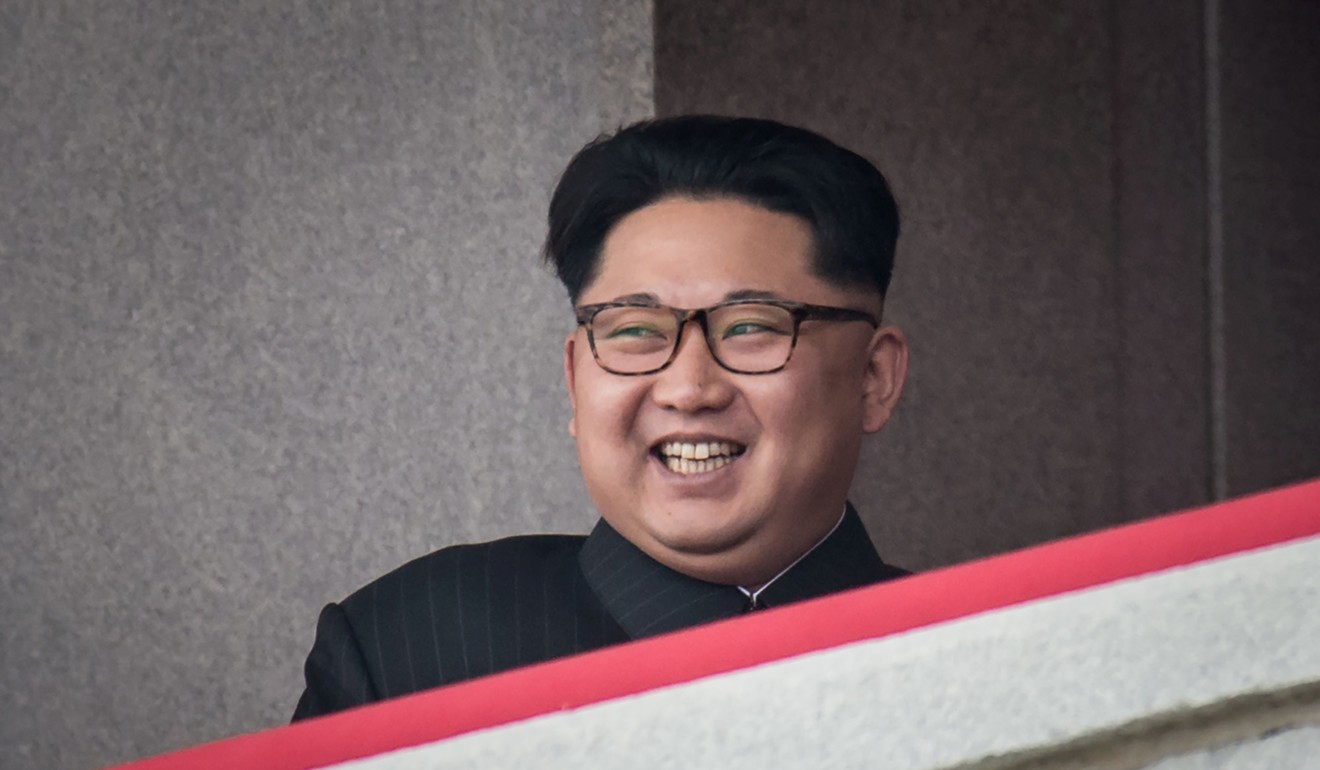
The three main ones that involve China in some form are investigations into whether steel and aluminium imports impair US national security, a review of trade agreement violations and abuses, and a review of the causes and contributors to trade deficits in major bilateral relationships. The first has been completed, the second is due in October and the third by the end of July. The decision on what remedies are to be applied on steel will be taken after Trump’s meeting with key leaders at the G20, said Gupta. “Something ugly on steel is coming – and coming soon.”
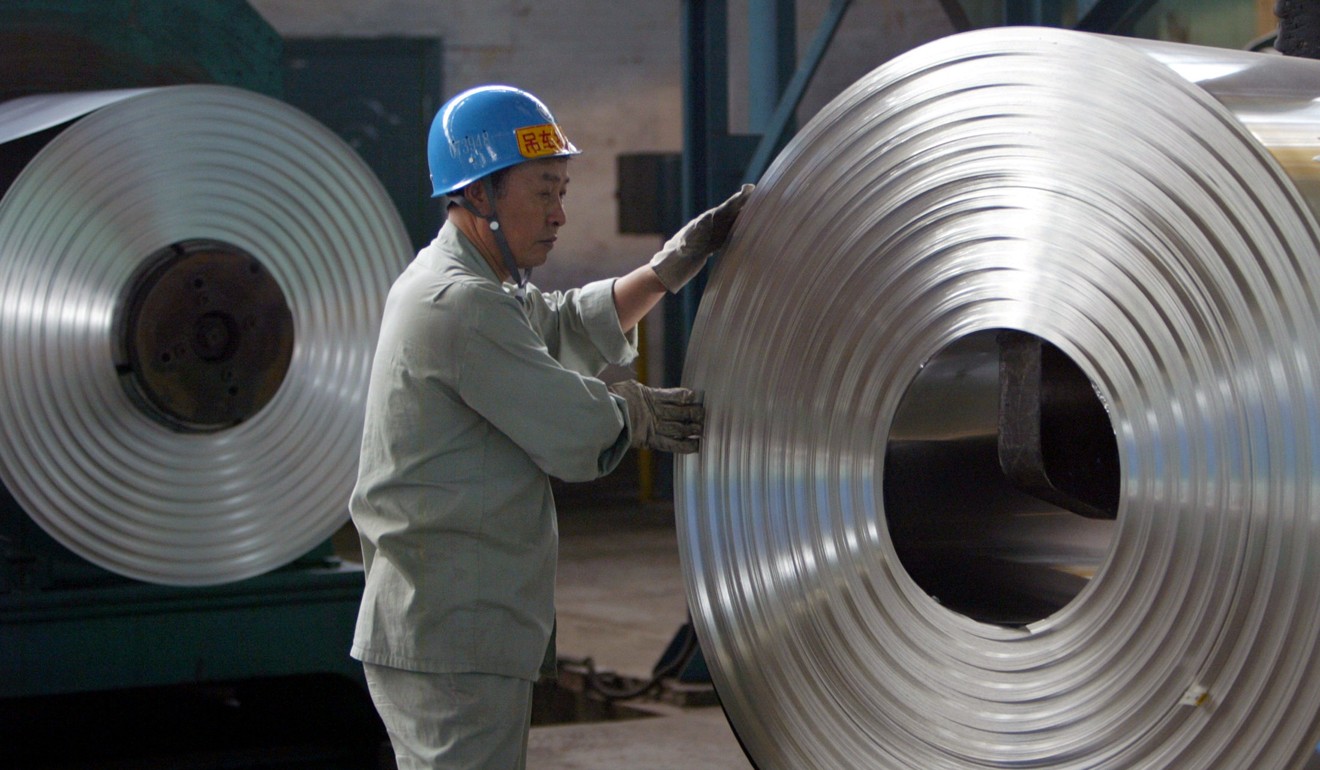
Since a full campaign of tough sanctions would involve the US blacklisting several Chinese banks to shut North Korea out of the international financial system, Denny Roy, a senior fellow at the East-West Centre who focuses on Asia-Pacific security issues, expects a long list of sanctioned entities. Apart from the possibility of Chinese retaliation, Roy also expects China to “try to surreptitiously help out the North Koreans by providing other ways for them to conduct international business”.
The fundamental Chinese limitation, he said, was that Beijing feared a regime collapse more than it feared North Korea having nuclear weapons. China would have to deal with millions of refugees in the event of a political crisis. “That almost certainly guarantees the Chinese will not be part of a successful effort to force Pyongyang to de-nuclearise unless something happens that dramatically alters China’s approach.”
Is North Korea behind WannaCry virus?
America’s dilemma is that there’s little it can do apart from hoping China will lean on Pyongyang. As Trump’s experience has shown so far, outsourcing the North Korea problem to China has its pitfalls. Yet, not having China on board is not an option either.
“America’s declared objective is to bring Kim Jong-un to his senses, not to his knees,” said Ralph Cossa, president of the Pacific Forum CSIS (Centre for Strategic and International Studies) in Honolulu. “This would be extremely difficult even with maximum Chinese effort. It becomes considerably harder, if not impossible, without Chinese cooperation and especially if China continues propping up the Kim regime.”
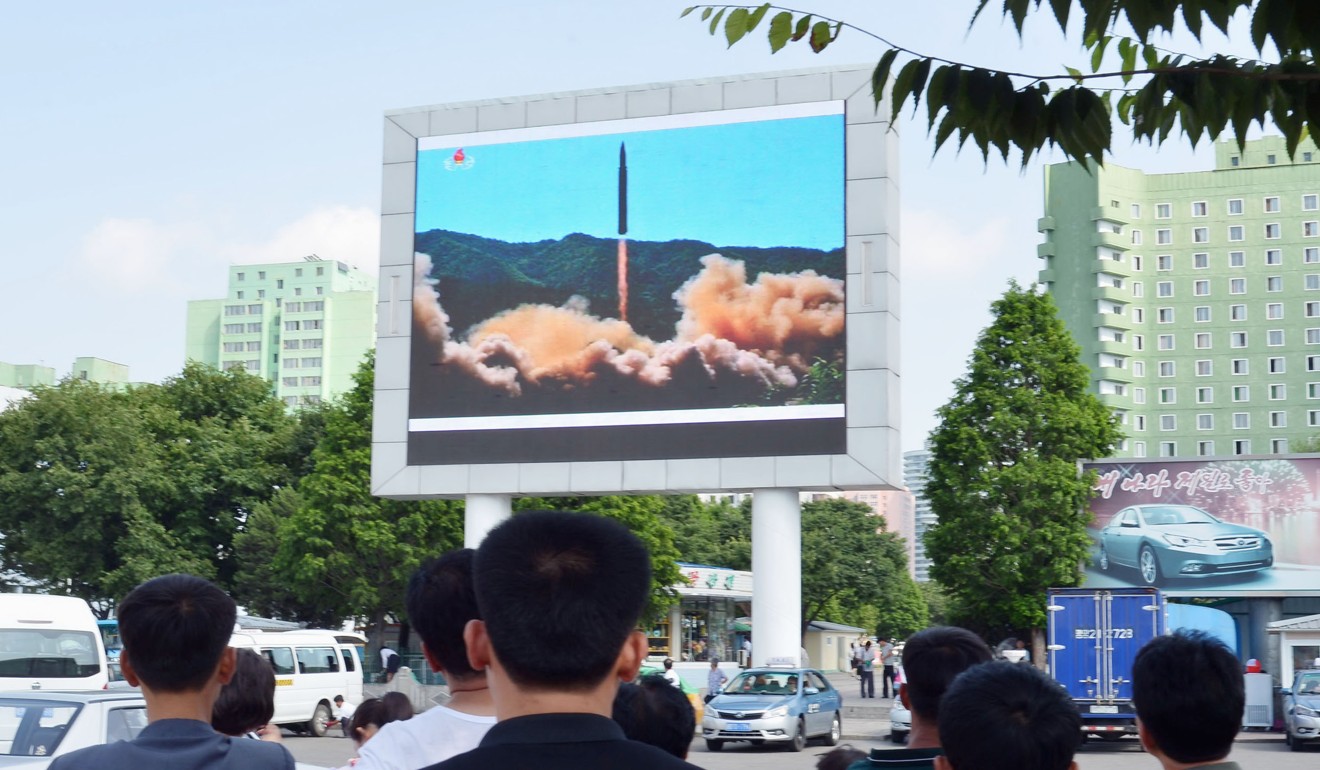
The popular perception of Chinese control over North Korea notwithstanding, the fact remains that the hermit kingdom views China with deep suspicion, according to Zha Daojiong, a professor at the School of International Studies in Peking University. “North Korea views China with deep suspicion. For example, official North Korean presentations of the country’s revolutionary history mention little, if any, Chinese sacrifice.”
SECURITY FALLOUT
“This test will prompt a wholesale review of options for the United States,” said Cha, outlining several outcomes other than sanctions, none of which would be palatable for China. “Among these will be significantly enhanced military exercises, possible deployment of additional troops, and increased pressure on Seoul to deploy as expeditiously as possible the remaining launchers of the THAAD [Terminal High Altitude Area Defence] battery.”
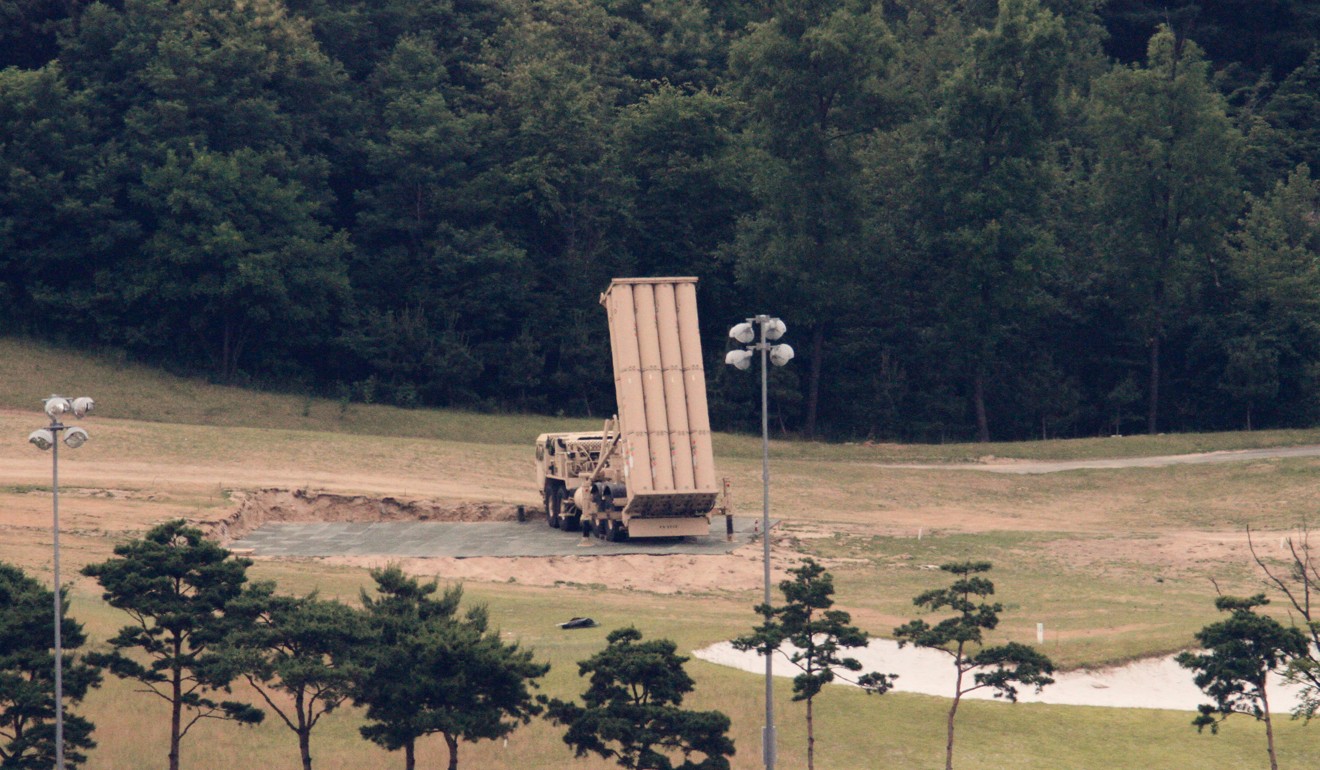
What Trump’s new policy on North Korea means for China
ROOM FOR TALKS
Despite the seemingly confrontational setting, most experts still see negotiations as the only way forward for the North Korea issue. The Trump team is understood to have put out feelers to North Korea through China in April that the US was not pushing for regime change, regime collapse, or reunification of the peninsula. “Overall, Trump is both primed to attack North Korea if his hand is forced but is also priming himself for a return to diplomacy if the North can meet some basic conditions,” Gupta said.
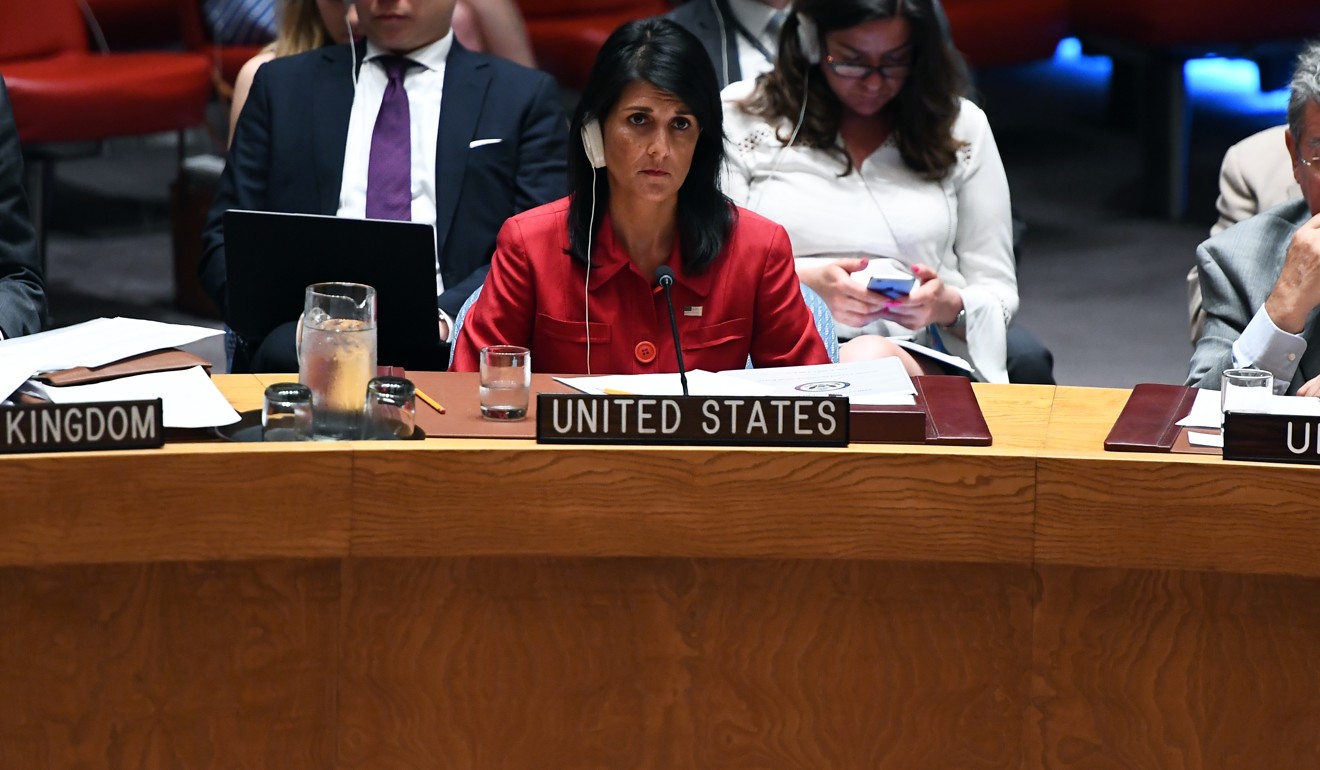
Over the years, said Morrison of the East-West Centre, North Korea had helped maintain China-US relations and also been a sore point. China’s cooperation on North Korea had been cited by several US presidents as a reason for maintaining a decent China relationship.
“Americans are reluctant to engage in talks that will lead to another disappointment, which is why China could make a difference. So, all the reasons for which China and the US need each other remain,” he said. “It’s fine to say strategic patience is over, but it’s still hard to make the case that strategic impatience will solve the problem.” ■

